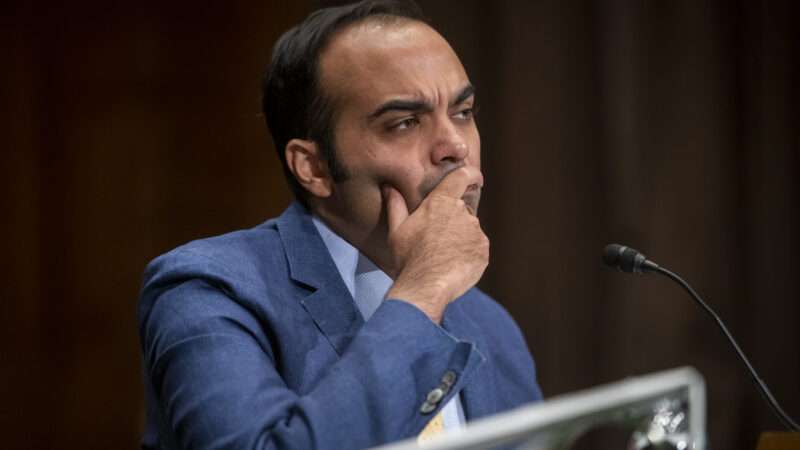
The U.S. Court of Appeals for the 2nd Circuit on Thursday ruled that the way in which Congress funds the Consumer Financial Protection Bureau is, in fact, constitutional. The ruling contradicts an opinion published in October by the U.S. Court of Appeals for the 5th Circuit, which held that the agency's funding "violates the Constitution's structural separation of powers." The Supreme Court, which had already agreed to review the 5th Circuit case, will likely resolve the circuit split next year.
The argument against the CFPB's constitutionality is simple. The Constitution's appropriations clause requires that monies drawn from the treasury be authorized by "Appropriations made by Law"—a power vested in Congress. Per statute, however, the CFPB funds itself unilaterally, requisitioning funds from the Federal Reserve (limited to 12 percent of the Fed's operating expenses). The CFPB bypassing the congressional appropriations process is an unconstitutional delegation by Congress of its "power of the purse."
"I hope the justices provide clarity on a number of issues there, because the CFPB has been constitutionally problematic from its inception," Ilya Shapiro, director of constitutional studies at the Manhattan Institute, tells Reason.
Judge Cory T. Wilson, writing for the 5th Circuit panel in October, argued that Congress "double-insulated" the CFPB from the traditional appropriations process: Not only does the agency self-fund, but its funding originates in the Federal Reserve, another entity that lives "outside the appropriations process." Wilson further noted that the Consumer Financial Protection Act "tacitly admits such a distinction in its decree that '[f]unds obtained by or transferred to the Bureau Fund shall not be construed to be . . . appropriated monies.'"
The CFPB has long weathered accusations that its structure violates constitutional separations of powers. More than a decade ago, C. Boyden Gray, who is a trustee for the Reason Foundation, which publishes this magazine, and Adam J. White, a professor at George Mason University's Antonin Scalia Law School, warned that Congress "delegate[d] effectively unbounded power to the CFPB, and couple[d] that power with provisions insulating CFPB against meaningful checks." Indeed, until the Supreme Court's ruling in Seila Law v. CFPB (2020), the CFPB director was largely statutorily insulated from removal by the president. "The bureau is a self-perpetuating body so extra-constitutional that it's really a fifth branch of government beyond even 'independent' agencies like the SEC and FCC that legal wags have dubbed the 'fourth branch,'" Shapiro says.
"Congress relinquished its jurisdiction to review agency funding on the back end," Wilson wrote. "Wherever the line between a constitutionally and unconstitutionally funded agency may be, this unprecedented arrangement crosses it."
Democrats constructed the CFPB as a quintessentially progressive regulatory institution: A partnership of government and big business, helmed by putatively disinterested and de facto unaccountable bureaucrats. Insulation from democratic accountability is, however, incompatible with the Constitution's plain text. "An elective despotism was not the government we fought for," wrote James Madison in Federalist No. 48, "but one which should not only be founded on free principles, but in which the powers of government should be so divided and balanced…that no one could transcend their legal limits, without being effectually checked and restrained by the others."
The post Federal Courts Clash Over Financial Watchdog's Constitutionality appeared first on Reason.com.







